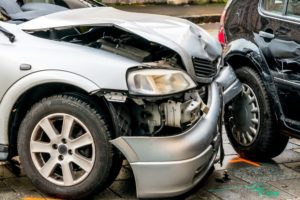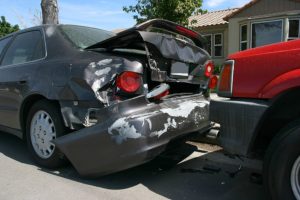Who Is Liable: Car Owner or Driver?
Car AccidentAfter a car accident, injured victims often face overwhelming pain, stress, and financial uncertainty. The road to recovery can feel daunting, particularly when medical bills and lost income pile up.
You may be entitled to compensation after sustaining an injury in a crash caused by someone else’s negligence. Even so, you must establish the liable party and initiate a compensation claim or lawsuit.
Establishing liability is not straightforward, as factors like permission to use the vehicle, insurance coverage, and negligence can complicate matters. Therefore, you should consult a legal professional when determining liability.
A car accident lawyer can investigate the crash, gather evidence, identify the responsible parties, and build a strong case to secure fair compensation for your injuries.
Key Takeaways
- Determining liability in a car accident depends on multiple factors, including negligence, permission, and insurance coverage.
- Both the car owner and driver can be held liable under concepts like negligent entrustment or vicarious liability.
- A driver is typically liable if they acted negligently, drove intoxicated, or used the car without permission.
- You can sue the car owner if they entrusted their vehicle to a reckless driver or if the driver lacks insurance.
- A car accident attorney investigates the crash, proves liability, and helps maximize your compensation through legal action or settlement.
- Always call a car accident lawyer when in doubt about how to proceed after a car crash.
Who Is Liable in a Car Accident: Owner or Driver
 It is not always clear when a vehicle owner or driver may be liable for a crash. Here are some key points to consider when trying to establish whether the car owner or the driver is liable for a car crash:
It is not always clear when a vehicle owner or driver may be liable for a crash. Here are some key points to consider when trying to establish whether the car owner or the driver is liable for a car crash:
- Negligent Entrustment: If the vehicle owner knowingly allows an incompetent or reckless driver to use their car, they may be liable for injury-related losses. Negligent entrustment places responsibility on the owner for allowing someone unfit to drive the vehicle.
- Agency Relationship: In some cases, the driver may act on behalf of the car owner, such as when running an errand or driving as part of their job responsibilities. If the accident occurs during the scope of this agency relationship, the owner may be held liable for the driver’s actions.
- Vicarious Liability: In certain situations, the legal concept of vicarious liability may apply, meaning that the owner can be held responsible for the driver’s actions, even if they were not directly involved in the accident. Vicarious liability typically applies in employer-employee relationships or where the driver performs duties on the owner’s behalf.
Here are a few reasons why a driver may be responsible for a crash:
- Negligent Driving: If the driver was speeding, distracted, or disobeying traffic laws at the time of the accident, they can be held liable for the resulting damages. Negligent actions behind the wheel can lead to devastating consequences and legal repercussions.
- Driving Under the Influence: Driving under the influence of alcohol or drugs is a serious offense that can greatly impact a driver’s ability to operate a vehicle safely. If a driver causes an accident while intoxicated, they can be held accountable for their reckless behavior.
- Unauthorized Use of the Vehicle: In some cases, if the driver was operating the vehicle without the owner’s permission or outside the scope of their allowed usage, the driver may bear sole responsibility for any accidents.
Can I Sue the Owner of the Car That Hit Me
If you’ve been involved in a car accident, you may be wondering whether to initiate legal action against the owner of the car that hit you. Here are some reasons why you may consider taking legal action against the car owner:
- Disputed Liability: You can solve a car accident claim if the negligent driver has disputed liability. Suing the vehicle’s owner makes sense to hold them responsible for entrusting it to the at-fault driver.
- Uncooperative Insurance Company: Dealing with an uncooperative insurance company can be frustrating and overwhelming. If the driver’s insurance provider denies your claim or offers insufficient compensation, you can initiate a lawsuit for fair compensation for your injuries.
- Lack of Insurance Coverage: When the driver lacks sufficient insurance coverage or is uninsured, pursuing legal action against the car owner may be the only way to recover economic and non-economic damages.
- Severe Injuries: If you have sustained severe injuries in the accident, the stakes are higher, and a lawsuit can help cover the substantial costs associated with your recovery and rehabilitation.
- Reckless Driving: If the accident resulted from the car owner’s negligent entrustment of their vehicle to a known reckless driver, you may have grounds to sue the owner for their role in the collision. A judge and jury can award you punitive damages if you demonstrate that reckless driving contributed to the accident.
A knowledgeable car accident attorney can help assess the circumstances of the accident and determine the best course of action to protect your rights and pursue a favorable outcome in your case.
How Much Can You Sue for a Car Accident
 There is no average value you can sue for your car accident. The value depends on the facts and circumstances of the case. Here are the factors that influence how much you can sue for a car accident:
There is no average value you can sue for your car accident. The value depends on the facts and circumstances of the case. Here are the factors that influence how much you can sue for a car accident:
Severity of the Injury
When determining the compensation amount for a car accident claim, the extent of your injuries determines the final settlement. More severe injuries often result in higher compensation due to increased medical bills, ongoing treatment costs, and potential long-term impacts on your life.
For instance, if you suffer from severe injuries such as spinal cord damage, traumatic brain injury, or permanent disfigurement, the financial implications can be substantial. These injuries may require extensive medical care, rehabilitation, and ongoing therapy, all of which can contribute to a higher settlement amount.
Additionally, severe injuries can lead to loss of income, reduced earning capacity, and emotional distress, which is why you may receive a higher settlement value. A car accident lawyer can use medical records to prove the extent of your injury and support your compensation claim.
Availability of Evidence
The likelihood of success in a legal case depends on the amount of evidence to prove your claims. The more evidence you have, the better your chances of receiving a higher settlement value for your losses.
Here are different sources of evidence that can enhance the value of your car accident lawsuit:
- Witness Statements: Eyewitness accounts of the accident can provide valuable insight into what happened and who was at fault. Witness statements can help corroborate your version of events and strengthen your case.
- Police Reports: Official police reports document key details of the accident, including the location, time, and cause. These reports can serve as evidence in establishing liability and determining the extent of damages.
- Photos and Videos: Visual evidence, such as photographs and videos taken at the accident scene, can provide a different perspective of the crash. For example, images of skidmarks can depict braking patterns, speeding, and collision points.
- Medical Records: Documentation of your injuries and medical treatment can support your claim for medical expenses. For instance, medical records can confirm the severity of your injuries and support your claim for ongoing treatment or physical therapy.
- Expert Analysis: Expert testimony from accident reconstruction specialists, medical professionals, or other experts can provide valuable insight into complex issues related to the accident.
- Vehicle Damage Reports: Reports detailing the damage to your vehicle can help establish the impact of the accident and the liable party.
- Financial Documentation: Records of financial losses, such as lost income or out-of-pocket expenses, help estimate economic damages. For example, an analysis of your bank statement can prove how much you have lost due to your inability to work.
A car accident attorney can use different sources of evidence to convince a judge and jury why you deserve a higher settlement value. They can also make compelling arguments to an insurer, leading to a better settlement value.
How Long Does It Take to Get Compensation for a Car Accident
 There is no average time that a car accident can take to settle. While some claims may take months to settle, some take years, particularly those with disputes or involving lawsuits.
There is no average time that a car accident can take to settle. While some claims may take months to settle, some take years, particularly those with disputes or involving lawsuits.
Here are the factors that influence how long it takes to settle a car accident:
Severity of Injuries
The extent of your injuries can determine the time it takes to settle. Severe injuries that require extensive medical treatment and rehabilitation may prolong the process. A car accident attorney may advise you to wait for maximum medical improvement, allowing you to understand the full extent of your damages before seeking compensation.
For example, someone who sustained a minor cut can receive compensation much faster than a victim with severe burn injuries that may require ongoing treatment.
Dispute Over Liability
Establishing liability can delay the compensation process if there is a dispute over who is at fault for the accident. Determining liability often involves a thorough investigation, evidence gathering, and possibly even witness testimony.
Resolving any dispute with the insurer or the at-fault party allows you to proceed to the settlement process.
Evidence Collection
Collecting evidence is the foundation of building a strong compensation case. The process can involve obtaining police reports, medical records, witness statements, and other relevant documentation.
The time it takes to gather and compile this evidence can vary depending on the details of the accident and the cooperation of the involved parties.
Settlement Negotiations
The settlement negotiations process begins after the injured party has initiated a personal injury claim. Settlement negotiations involve discussions between a car accident lawyer and the insurance company to reach a fair settlement.
The length of this process can vary, as both parties may need time to review the evidence and assess the value of your claim.
Court Involvement
Your case may proceed to trial if you cannot settle through negotiations. Court involvement can extend the timeline for receiving compensation, as court proceedings may take time to schedule and complete.
However, going to court allows for a neutral assessment of your case by a judge, potentially leading to a higher compensation value.
Insurance Company Cooperation
The cooperation of the insurance company handling your claim can also impact the speed of the compensation process. Delays may occur if the insurance company is unresponsive, requests additional information, or disputes the value of your claim. Working with an experienced attorney can help navigate these challenges and ensure your rights are protected throughout the process.
Get Trusted Legal Support to Prove Liablility
 Your likelihood of recovering from injury-related losses depends on the settlement value you receive from your car accident claim. Without a legal professional, you may find it difficult to identify the liable party and obtain fair compensation.
Your likelihood of recovering from injury-related losses depends on the settlement value you receive from your car accident claim. Without a legal professional, you may find it difficult to identify the liable party and obtain fair compensation.
A skilled car accident lawyer will carefully investigate the crash, collect strong evidence, and build a compelling argument to establish liability. They can also negotiate with insurers or litigate the case in court to protect your right to compensation.
Don’t face the aftermath of a crash alone; trust a dedicated car accident lawyer to fight for your rights and provide the support you need to move on.
Frequently Asked Questions
Do I Need a Lawyer for a Car Accident Claim?
Hiring a car accident attorney for your car accident claim can increase your chances of fair compensation. They can handle negotiations, gather evidence, and deal with the negligent party’s insurer.
What if the Other Driver Is Uninsured?
If the other driver is uninsured, you may still recover compensation from your uninsured/underinsured motorist coverage. A car accident attorney can help file a claim, assess policy limitations, or file a lawsuit against the at-fault party.
How Long Do I Have to File a Claim After a Car Accident
You should act quickly after a car accident because waiting too long can jeopardize your right to compensation. Delays may lead to lost evidence, weakened claims, or missed legal deadlines.
A car accident lawyer can help make prompt investigations, gather evidence, and initiate a timely claim.
Nathan Hughey, an attorney and fourth-generation South Carolinian, founded Hughey Law Firm in 2007. Before that, he spent five years defending nursing homes and insurance companies. Leveraging his experience, he now advocates for those injured or wronged by such entities, securing over $290 million in verdicts and settlements.
